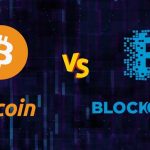Have you noticed how games have shifted to a freemium model, where big triple-A titles can be played for free, but with a ton of in-game purchases? Yes, today’s video games have their virtual economies, and most of the games where game developers want to make some money, have their own in-game currencies.
Right now, in-game currencies in traditional games don’t have any value. These are basically a code in the algorithm of the game for a certain amount. These currencies can be used for purchasing in-game items from the shop.
Even though they are often used negatively, in-game currencies can really enhance the experience of gamers. But they are not used to their full potential.
This is where cryptocurrencies come in handy. We are talking about blockchain technology, that can be infused in video games to provide gamers with higher transparency, better economies, and in-game currencies that actually hold real-world value.
Sounds exciting, right? Let’s learn more about how cryptocurrencies can revolutionize the gaming industry.
The Evolution of In-Game Currency
Most, in fact, all of the popular games we play at the moment have some kind of in-game currency. We have gold in World of Warcraft, V-bucks in Fortune, and Robux in Roblox. All of them have a similar purpose. Gold in World of Warcraft is used for upgrading your gear or buying special items, and in Fortnite, you can buy skins and other in-game items.
But here is the catch. Developers now have full control of your hard-earned coins in their digital shops. They are responsible for setting prices, discounts, and limited time offers, which eventually disrupts the game economy, and sometimes introduces unfair practices.
Additionally, you cannot withdraw V-bucks or gold from World of Warcraft in real life (although it would have been awesome). They can be only used in the game and cannot be converted into anything else.
With cryptocurrencies, we have an entirely different story. Unlike traditional in-game currencies, these actually hold a real-world value, they are more secure, everything is happening on the blockchain so it is not in the hands of the developers, and they can even be traded for other digital assets or fiat money.
Everything is just better for the gamers!
That’s why we see games like “Axie Infinity” and “Deentraland” booming in popularity. They’ve used blockchain technology to create virtual economies, where in-game assets (skins and collectibles) are represented as non-fungible tokens (NFTs) and we have in-game currencies as cryptocurrencies.
So, the skin you buy actually holds some value, and can later be resold or traded for something else.
Some games even adopt some of the most popular cryptocurrencies on the market instead of making their own token, which also comes with plenty of advantages. Which are the most popular cryptocurrencies used in video games? Learn more here.
NFTs Are Also Part of The Process
How are NFTs used in video games? Well, they are basically the things that you buy with your in-game currencies. In Fortnite, you buy skins, and cosmetics (usually appearance-enhancing items), but they are just a digital code.
On the other hand, NFTs can also represent skins in games, but they have limited supply, rarity, and unique traits, and all of these things add additional value to your digital item. Additionally, with NFTs, you really own the digital item and can be even sold on a separate market outside of the game.
So, why stop owning items? The “play-to-earn” model has gamers participating in games to earn cryptocurrency, turning what was once a leisure activity into a potential source of income. For instance, players in developing regions are earning real money by simply playing games like “Axie Infinity,” redefining gaming as a viable livelihood.
Play-to-Earn Model
Imagine getting paid to play your favorite games. Sounds like a dream, right? Thanks to cryptocurrencies, this is no longer just fantasy. The “play-to-earn” model rewards players with cryptocurrency or NFTs for achieving in-game goals, completing quests, or even just showing up regularly. For example, players of “Axie Infinity” can earn SLP (Smooth Love Potion) tokens that can be traded for other cryptocurrencies or fiat money.
There are also other games like Guild of Guardians, that also allow you to earn money.
This new model has proven especially attractive in developing countries, where playing these games can provide a meaningful source of income.
However, it’s not all sunshine and rainbows. Blockchain networks still face scalability issues — slow transaction times and high fees can make the gaming experience less enjoyable. Moreover, the intersection of gaming and cryptocurrencies is still navigating a murky regulatory landscape. Security is another big concern; crypto gaming platforms are attractive targets for hackers and scammers.
Blockchain and Gaming: What’s Next?
The future of cryptocurrency in gaming looks more like a sci-fi movie every day. With the rise of metaverse platforms, the line between gaming, socializing, and reality blurs even further. Picture a digital universe where you own everything from the shoes on your avatar’s feet to the skyscraper you designed yourself, all represented as NFTs.
Metaverse games like “The Sandbox” and “Decentraland” are leading the way, providing vast, interconnected worlds where players can socialize, trade, and create.
Blockchain technology also offers the possibility of truly cross-platform play, allowing your progress and assets to follow you across different gaming environments. This could be a game-changer (pun intended) for both players and developers, fostering a new era of creativity and freedom in game design.
Why Should Gamers Care About Cryptocurrencies?
Okay, but what does all this mean for the average gamer? For one, it means greater control over in-game assets and the potential to earn real money. It also means more innovative and diverse gameplay experiences, as developers experiment with decentralized technologies and player-driven economies. Here’s a quick rundown of some key benefits:
- True Ownership: No more worrying about developers pulling the plug and wiping out your hard-earned items.
- Interoperability: Use your assets across multiple games and platforms.
- Income Opportunities: Turn your gaming passion into a potential side hustle.
- Enhanced Security: Blockchain’s decentralized nature can reduce fraud and cheating.












